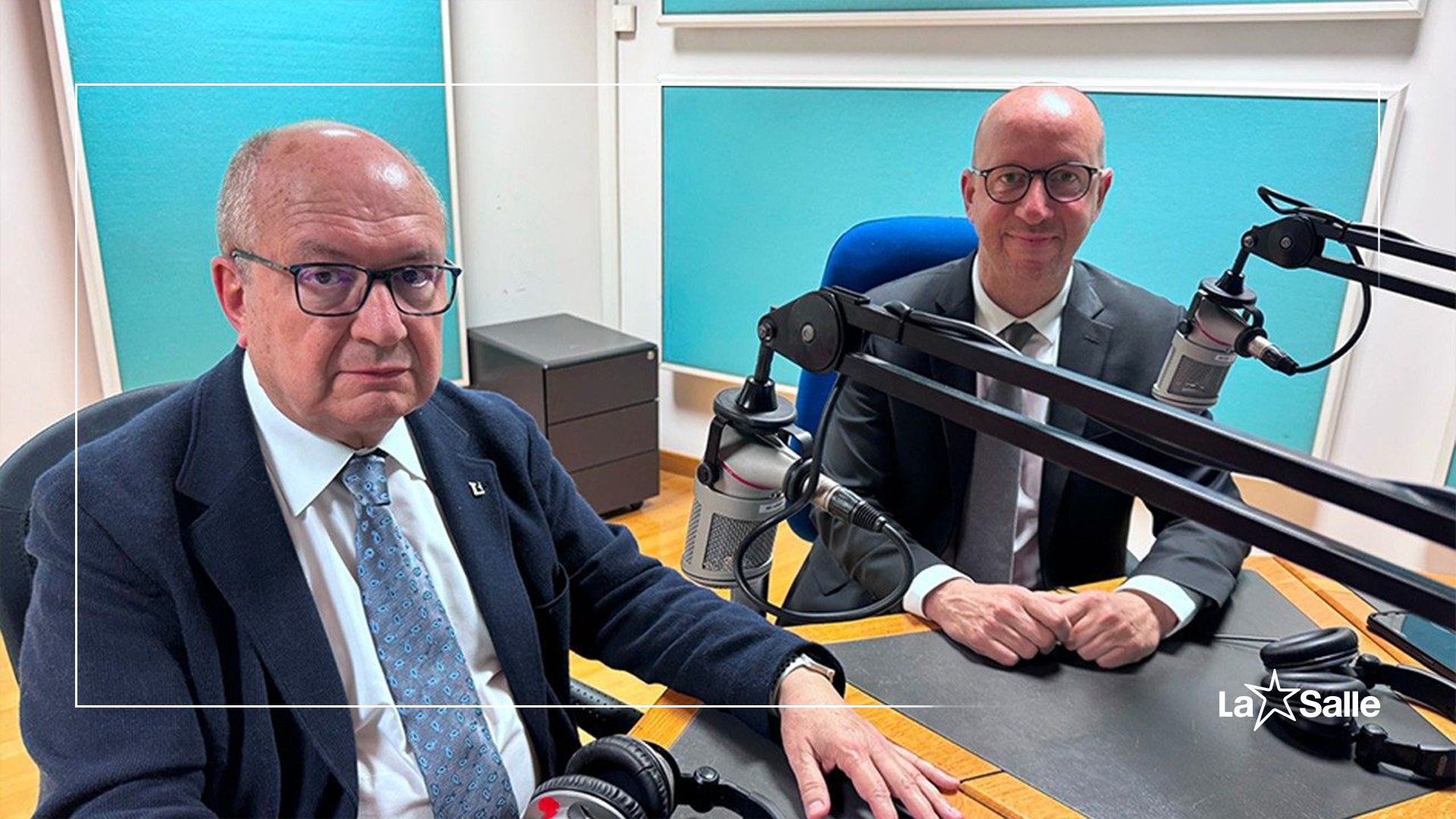One of the objectives of the International Office of Catholic Education (OIEC) is to live the mission of the Church by promoting a Catholic-inspired educational project in the world. In a visit to the Vatican media, its Secretary General, Hervé Lecomte, and Project Director, Br. Juan Antonio Ojeda, spoke about the current work, challenges and tasks they are developing for the implementation of the Global Compact on Education proposed by Pope Francis.
Hervé Lecomte, OIEC Secretary General, explained in an interview on the Vatican Radio and Vatican News podcast Nota Ecclesial that “the International Office of Catholic Education is present in 110 countries worldwide, representing more than 210,000 schools for 68 million students, with the aim of operating the Church’s mission for Catholic schools”.
“The first and most important thing – expressed Lecomte – is to work on the development of the Global Compact on Education, that is to say that we work with the Vatican so that the wonderful texts of the Pope can enter every school with respect for the principle of subsidiarity that exists”.
On the main challenges for Catholic education, he declares that the first is “the concern for children’s health and with this difficult world, with the war, with many things we can hear … it is important that we can work for them”.
“The second, with Artificial Intelligence (AI), we can see an incredible change in the evolution of education. We have to work also to help children to work with AI, to help teachers to adapt what they do (…)”, but insisting with the “Global Compact on Education, on making human persons the centre”. It’s a huge challenge.
Br. Juan Antonio Ojeda, Project Director of the OIEC, also considers that in the Jubilee Year, the Global Compact on Education “is an opportunity for all of us to take up education again and place it on the path of hope. Hope tells us that a new education is possible, but to do so we have to get out of our comfort zone. Clearly, the education we have been doing is outdated, often anchored in the past, and needs to be updated and respond to today’s challenges and needs”.
To this end, the International Office of Catholic Education, in collaboration with the Dicastery for Culture and Education, among others, proposes “a document entitled ‘Exodus, Conversion, Hope’, which invites schools, educational communities, educational and social agents of the municipality to set out on a journey, to go out to meet others, to learn from each other, to join wills and efforts, to join common projects, and for this it is basic and fundamental to convert ourselves individually and communally”.
Br. Juan Antonio also reminds us that “the Pope has been insisting that in order to generate a more habitable world and care for the common home, it is basic and necessary to change our consumption habits, our production habits, etc., because if we want to generate a new education that reaches everyone, it is necessary to change our being, our more critical way of thinking, etc., our way of relating to one another, more empathetic and compassionate, to collaborate together and not to remain in the mere lucubration of beautiful things, but to take action”.
Regarding the initiatives that the OIEC is carrying out to promote peace through education, the Secretary General shared that “young people are very interested in projects on this topic. At the OIEC, we have been implementing a project for the last four years called Planet Fraternity, which has been spread in more than 34 countries, with 5,000 students operating on a theme that allows them to discover other countries, another culture, and it is working very well”. Similarly, “at the end of March we have launched a project called Mediterranean Rally, around the Mediterranean, to promote projects made by children around the Mediterranean on the theme of peace”.
The OIEC is recognised as an international Catholic organisation by the Holy See. It operates in close cooperation with the Dicastery for Culture and Education. It also has consultative status with the United Nations (ECOSOC, Geneva and New York), UNESCO and the Council of Europe.



